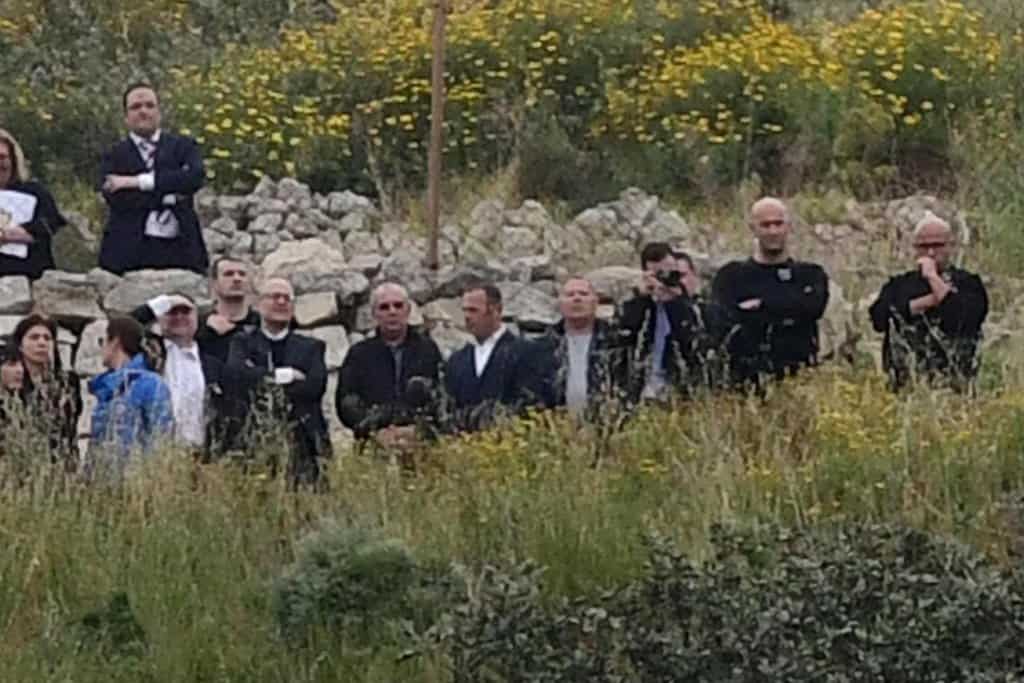
The criminal court has just completed the painful process of selecting from around 180 people drawn by lot, 14 citizens, picked to serve justice as jurors in the trial of brothers George and Alfred Degiorgio. They stand accused of killing Daphne Caruana Galizia 5 years ago less 2 days.
The Degiorgios have come up with all manner of delaying tactics imaginable to avoid coming to this point, though this 5 year wait is not all to their credit.
They were first arrested around 6 weeks after the murder. Complex technical evidence against them was heard until 2019 when Melvyn Theuma was arrested and turned state’s witness. The file of the evidence was opened again to hear Theuma’s direct evidence of their commissioning.
In the meantime they piled up several human rights complaints giving their reasons for their release, all of them rejected. They have given no indication of giving up using the courts to try to prevent the courts from trying them. Their efforts are far from over.
They opened a new front when their lawyer, William Cuschieri, resigned their brief just a few weeks ago. Their story is he quit. It’s also possible, I would say likely, that they fired him to resort to the tactic of complaining they are not being competently and properly represented.
Alfred Degiorgio is on his second hunger strike this month. He is fit to stand trial today though he has tried his damnest to avoid being that. But today is only the start of the trial. It would, if it could, go on for weeks. Will he still be strong enough on Monday if he sticks to his hunger strike?
Consider that he is not just a spectator in his trial. He is, at least as he sees it, his own lawyer. Have the Degiorgios found a novel way of frustrating justice? Will it be possible to complete the trial that starts today or will it have to be dissolved due to the self-induced illness of the defendant who is also, in his mind if not in fact, his own attorney?
And what happens if the trial is indeed dissolved? Can the accused be held in custody until a new trial is scheduled?
In theory, the Degiorgios were entitled to bail after a maximum of 30 months of preventive custody. Using the exceptions provided in the law, the judge suspended that time frame and kept them in preventive custody until the date of the trial starting today.
The Degiorgios are an obvious flight risk. They are facing charges that are punishable potentially by a life sentence. It would be logical for them to risk all to seek to avoid it.
Yesterday, on the eve of the trial, the government sprang an amendment to the law, proposing to Parliament an additional reason to suspend the 30-month limit when someone awaiting trial harms themselves to avoid it and tries to get over the limit of preventive detention that way. The Parliamentary opposition signalled their agreement and urged that the amendment is adopted urgently.
The timing raises the inevitable feeling that Parliament is considering a law on the basis of the needs of a specific ongoing case. It is, no doubt, a case of national importance. I have certainly argued as much most days of the last 5 years. It is, I have often argued, a mafia crime for which we should have anti-mafia laws. The Daphne inquiry said we need anti-mafia laws and the government ignored them. The Parliamentary opposition proposed anti-mafia laws last December and the government voted them down and laughed them off.
The anti-mafia laws are not needed just because Daphne was killed. Daphne’s murder merely but most explicitly showed us that mafia crimes are not something that only happens abroad. They can happen here too. If it happened once it can yet happen again and next time we’ll have no excuse if we’re not legally prepared to deal with it.
Introducing a patch in the law to deal with situations of self-harm appears to be, in the present context, a reaction to very specific and present circumstances. In that respect it’s a legal tool that may prove inapplicable for the present case, or worse, if wielded clumsily, counter-productive.
The beginning of a trial is not the time for its autopsy. There will be time to discuss what was done right and what was done wrong. It should, however, surprise no one that people who the state believes have killed someone for money, will use every vulnerability they believe exists in the set-up of the state to avoid conviction. The last thing the state should be doing now is come up with some fresh vulnerabilities for the defendants to exploit.
The more immediate fear however, as this long overdue trial starts today, is that as uncertain as its outcome must be, it is just as uncertain whether it will have an outcome at all.